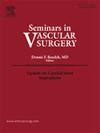A narrative review of psychological safety in the surgical learning environment
IF 2.4
3区 医学
Q1 PERIPHERAL VASCULAR DISEASE
引用次数: 0
Abstract
Psychological safety is a critical component of the medical learning environment. While multiple synthesis studies exist for psychological safety within broader medical education, few have focused specifically on surgical training paradigms. This narrative review evaluates psychological safety for surgical trainees. A literature search of PubMed was conducted to identify studies discussing psychological safety within the surgical learning environment. Studies were included if psychological safety was a primary outcome, predictor, or theme. Studies were excluded if surgical trainees were not included or specifically discussed. A total of 53 articles were screened. Of these, 36 were excluded for relevance, and the remaining 17 full texts were reviewed. Reasons for exclusion include: study was conducted internationally; psychological safety was not a critical outcome, predictor, or theme; study focused on nonsurgical medical specialties (ie, anesthesia or psychiatry); and psychological safety of surgical trainees was not discussed despite surgical trainees being within the study cohort. A total of 11 studies were included for comparison. Four studies evaluated the positive impact of psychological safety within care teams that included surgical trainees. Two discussed the importance of building psychological safety as a surgical educator. Five studies evaluated learning environment factors or interventions that predicted psychological safety. Existing literature on psychological safety within the surgical learning environment focuses on educators, surgical teams, and specific aspects of the learning environment. While these studies offer valuable insight, additional studies are needed to identify effective interventions and operationalization of previous recommendations.
外科学习环境中心理安全的叙述性回顾
心理安全是医学学习环境的重要组成部分。虽然在更广泛的医学教育中存在多种心理安全综合研究,但很少有专门关注外科培训范例的研究。这篇叙述性综述评估了外科受训者的心理安全性。对PubMed进行文献检索,以确定讨论外科学习环境中心理安全的研究。如果心理安全是主要结果、预测因子或主题,则纳入研究。如果没有纳入或专门讨论外科受训者,则排除研究。共筛选了53篇文章。其中36篇因相关性而被排除,其余17篇全文进行了审查。排除的原因包括:研究是在国际上进行的;心理安全不是一个关键的结果、预测因子或主题;研究重点是非外科医学专业(如麻醉或精神病学);尽管外科受训者在研究队列中,但没有讨论外科受训者的心理安全。共纳入11项研究进行比较。四项研究评估了心理安全对包括外科实习生在内的护理团队的积极影响。两位讨论了作为外科教育者建立心理安全的重要性。五项研究评估了预测心理安全的学习环境因素或干预措施。关于外科学习环境中的心理安全的现有文献侧重于教育工作者、外科团队和学习环境的特定方面。虽然这些研究提供了有价值的见解,但需要进一步的研究来确定有效的干预措施和实施以前的建议。
本文章由计算机程序翻译,如有差异,请以英文原文为准。
求助全文
约1分钟内获得全文
求助全文
来源期刊
CiteScore
3.50
自引率
4.00%
发文量
54
审稿时长
50 days
期刊介绍:
Each issue of Seminars in Vascular Surgery examines the latest thinking on a particular clinical problem and features new diagnostic and operative techniques. The journal allows practitioners to expand their capabilities and to keep pace with the most rapidly evolving areas of surgery.

 求助内容:
求助内容: 应助结果提醒方式:
应助结果提醒方式:


